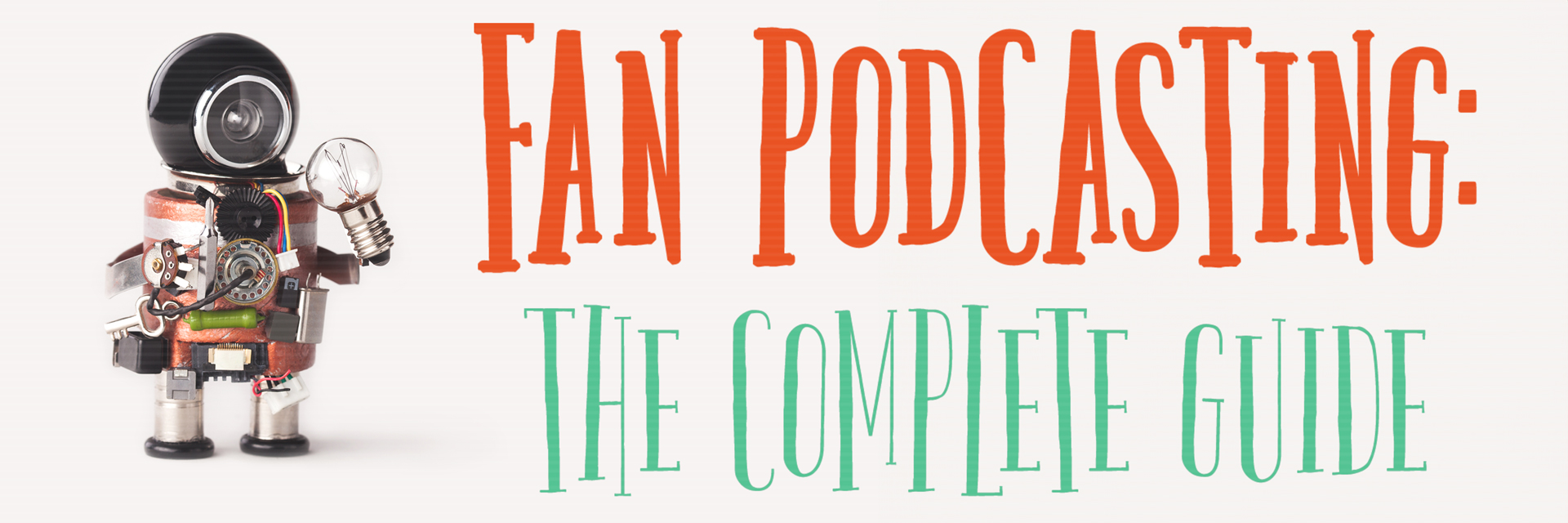My name is Bill Meeks, and for seven years I hosted “fancasts” with my partner Anne Marie DeSimone. We started in an unheated garage with a handheld bi-directional recorder, and within two years we were live streaming three nights a week with pro microphones, a modest set, props, and an active chat room calling us out whenever we got something wrong. We made money too. Not enough to live on, but more than enough to fund everything and put a few dollars in our pocket.
Our first episode of Greetings From Storybrooke. It’s pretty rough.
“We’d talk about the shows anyway, so why not hit the record button? If we’re doing it anyway, might as well share it. It’s just the natural thing to do.” Kevin Bachelder, Host – Tuning Into SciFi TV
At the height of our Universe Box podcast network, we were getting 40,000 unique downloads a month across several shows. Our first hit was Greetings From Storybrooke, where we talked about the ABC TV series Once Upon A Time. Our most popular show, Legends of Gotham, covered the Fox series Gotham, set in the world of Batman. By most measurements, we were the top Gotham podcast, although I always thought the Gotham TV Podcast did a better job. For a few years, we were killing it. We formed relationships with the people making the shows. We built a kind, generous, and creative community. Most importantly, we had a heck of a lot of fun doing it.
I’ve thought a lot about what it takes to discuss a show every week, even when you aren’t feeling it. I’ve thought a lot about criticism, and I found a way to review a show that won’t piss off all your listeners. I’ve spent a lot of time, both in podcasting and for big media companies, building and growing creative communities online, and I have some thoughts on how to do it effectively.
“Podcasting is a community, and there’s a lot out there we can learn from each other.” Les Howard, Host – The Signal
This book isn’t a technical guide on how to record great audio, build a podcast feed, monetize your show, etc. There are already many great resources that cover those topics. I recommend The Audacity to Podcast, from my fellow Once-caster Daniel J. Lewis, to learn more about the technical side of podcasting. You don’t need a tech guide from me. I know things about audio, but I’m not an audio expert. I don’t care which mic stand you buy. I don’t know how to get a MeUndies promo code deal. Content is king. I’m an expert in fancasting and community building, so that’s the book I’m writing.
“Everybody can podcast, and you can podcast about anything you want to.” Stephanie Smith, Host – PotentialCast: A Buffy The Vampire Slayer Podcast
I know a lot of other podcasters who create content based on popular movies, TV shows, books, etc. You’ll see them chime in[1]1 throughout the book, offering a fresh perspective on the topic that, in many cases, I disagree with. And that’s okay. For most of this stuff, there is no one “right” answer. There is the “right” answer for you, the one that helps you create compelling content about the things you love. I hope between my opinions, the opinions of my friends, and your own podcast preferences, you’ll triangulate a formula that sets you up for success.
< TABLE OF CONTENTS | THE 3 RULES OF CRITICISM >
- 1 Some quotations came from a survey I sent out while researching this book, and from my fancasting beta readers. Some came from my new interview show I Made This. I’ve also pulled quotes from a panel I hosted at Dragon Con in 2013 called How To Start A Fancast. You can listen to the full panel here:

